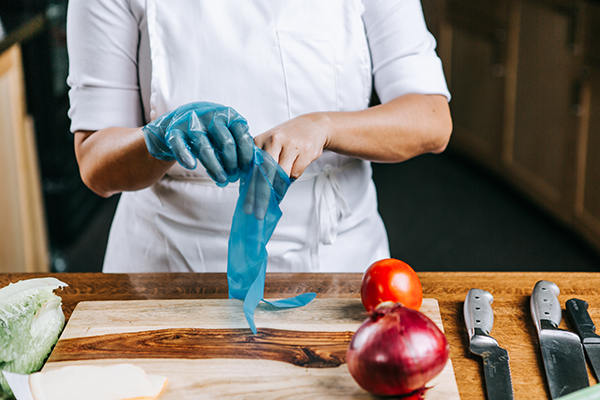A Fresh Start: Recommitting Yourself and Your Business to Food Safety in 2024
As we get settled into the new year and leave the hustle and bustle of the holiday season behind, it is the perfect time for reflection and improvement. Everyone is focused on self-improvement and how they can get ahead in the new year. While it is a great time to do so, don’t forget about your business goals, too. For foodservice operators and managers, hopefully this means reevaluating and recommitting to food safety, one of the cornerstones of a successful food business.
The importance of maintaining these high standards and establishing the food safety culture that we often talk about in this blog cannot be overstated. It ensures the well-being of your customers and employees and safeguards the reputation and success of your business. Here are some tips to help you recommit yourself and your foodservice operation to food safety in the new year.
- Food Safety Training: Offer the opportunity for your employees to attend food safety training on a regular basis. I always point out to managers that food safety knowledge is not the end all and be all – meaning that it will not change employee behavior per se, but employees cannot follow the correct food safety practice if they simply are uneducated and don’t know what should be done. Ensure employees who are involved in food handling and preparation have the certifications necessary for your location. Most jurisdictions follow the food code, which doesn’t mandate certification (you could demonstrate food safety knowledge on-site at the time of inspection), but certification programs are designed to ensure that employees learned the basics of food safety and are able to demonstrate it on a certification exam. This also ensures they are updated on industry standards.
Everyone is focused on self-improvement and how they can get ahead in the new year. …hopefully this means reevaluating and recommitting to food safety, one of the cornerstones of a successful food business.
- Enhanced Sanitation Practices: Start the new year with a thorough deep cleaning of your kitchen and food preparation areas. Pay attention to often overlooked areas, such as equipment surfaces, ventilation systems, and storage spaces. While you are working through the deep cleaning, update your cleaning SOPs and make sure your cleaning schedule has been updated to reflect changes in cleaning protocols, chemicals, any changes to equipment and/or facilities.
- Focus on Good Habits: Which good habit do you want to focus on? While it doesn’t matter to me, you might consider focusing on one of the top three issues that cause foodborne illnesses: personal hygiene, cross contamination, or temperature control. Pick one of these and make it your focus for the first part of the year. We call these keystone habits, and we find that changing or improving upon these keystone habits will help change your entire food safety culture. Will it be taking end-point cooking temperatures? Improving handwashing frequency and methods? Ensuring employees wash and sanitize prep tables when they start their job for the day? While the practice itself is important, what is more important is demonstrating to employees your commitment to food safety and starting to change bad behaviors, breaking old habits and introducing new, improved habits.
- Regular Inspections and Audits: This doesn’t mean you need to hire a consulting company to come in and do an audit, but plan for internal audits and rotate the responsibility among your management team. Evaluate how effective your current practices are, identify areas in which you and your employees can improve, and develop action plans to address those issue. Plus, if you don’t monitor them, how will you be able to ensure your new habits are starting to take hold?
Recommitting to food safety is not just a resolution; it’s a commitment to the health and safety of your customers, staff, and business. By investing time, resources, and energy into ensuring that your foodservice operation adheres to the highest food safety standards, you set the stage for a successful and thriving year ahead. Make 2024 the year your commitment to food safety sets your establishment apart. Risk Nothing.










